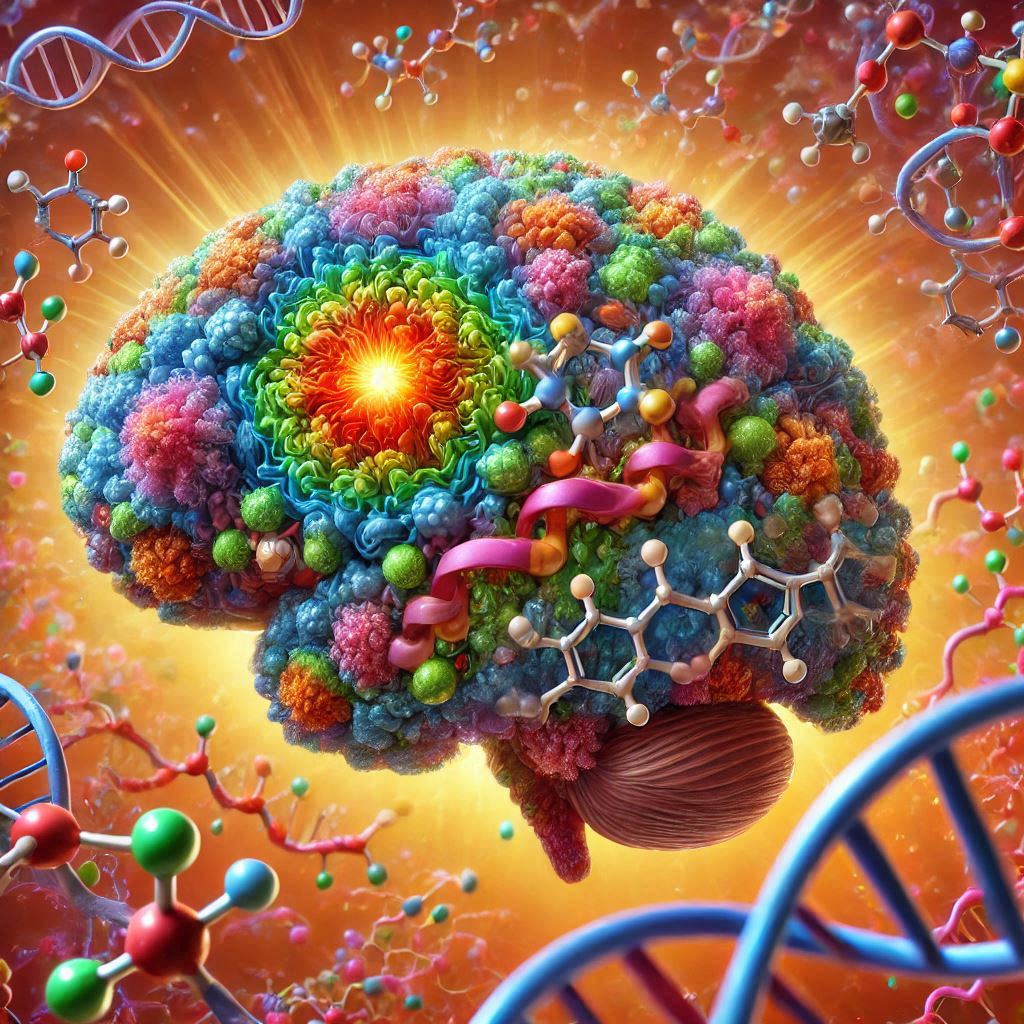Contents
- 1 Nature’s Potential Neurological Defender: Understanding a Powerful Flavonoid
- 2 Prof. Aécio D’Silva, Ph.D AquaUniversity
- 3 Summary: Luteolin – A Natural Ally Against Alzheimer’s Disease
- 4 Article: The Silent Protector: Luteolin’s Journey in Neuroscience
- 5 What Exactly is Luteolin?
- 6 Luteolin – The Molecular Mechanism of Brain Protection
- 7 Neuroinflammation: The First Line of Defense
- 8 Antioxidant Capabilities: Protecting Cellular Integrity
- 9 Beta-Amyloid Interference: Disrupting Alzheimer’s Signature Protein
- 10 Neurogenesis and Synaptic Plasticity
- 11 Historical Discovery and Scientific Evolution
- 12 Clinical Implications and Future Prospects
- 13 Sources and Natural Occurrence
- 14 Conclusion: A Molecular Hope
Nature’s Potential Neurological Defender: Understanding a Powerful Flavonoid
Prof. Aécio D’Silva, Ph.D
AquaUniversity
Summary: Luteolin – A Natural Ally Against Alzheimer’s Disease
Luteolin, a plant-based flavonoid found in various fruits, vegetables, and herbs, has emerged as a promising candidate in the fight against Alzheimer’s disease. Its unique molecular structure enables it to offer a multifaceted defense for brain health.
Key Mechanisms:
- Anti-inflammatory Action: Luteolin modulates the brain’s immune cells (microglia) to reduce harmful neuroinflammation, a key factor in Alzheimer’s progression.
- Antioxidant Properties: It neutralizes free radicals, protecting neuronal cells from oxidative stress and preserving mitochondrial function.
- Beta-Amyloid Interference: Luteolin disrupts the formation of toxic beta-amyloid plaques, a hallmark of Alzheimer’s, preventing neuronal communication breakdown.
- Support for Brain Regeneration: It stimulates neurogenesis and enhances synaptic plasticity, supporting cognitive resilience and potential recovery.
Origins and Research:
Initially recognized in traditional medicine, luteolin gained scientific attention in the late 20th century. Recent advancements in molecular studies have highlighted its therapeutic potential, though further research is required to determine optimal usage and long-term efficacy.
Natural Sources:
Luteolin is abundant in celery, green peppers, carrots, thyme, and artichokes. Incorporating these foods or supplements into diets may provide protective neurological benefits.
While not a cure, luteolin represents a promising complementary approach to Alzheimer’s management. Its natural origin and protective capabilities showcase the potential of leveraging nature to safeguard brain health.
Article: The Silent Protector: Luteolin’s Journey in Neuroscience
Luteolin – In the intricate landscape of neurodegenerative research, few molecules have captured the scientific imagination quite like luteolin. This remarkable flavonoid, often overlooked in casual conversations about brain health, represents a beacon of hope in our understanding of Alzheimer’s disease prevention and potential treatment.
What Exactly is Luteolin?
Luteolin is a naturally occurring flavonoid, a type of plant-based compound found in numerous fruits, vegetables, and herbs. Structurally, it belongs to the flavone subclass of flavonoids, characterized by a unique molecular configuration that gives it extraordinary biological capabilities. Unlike many pharmaceutical compounds, luteolin emerges directly from nature, making it particularly intriguing to researchers seeking holistic approaches to neurological health.
Luteolin – The Molecular Mechanism of Brain Protection
The human brain is an incredibly complex organ, vulnerable to multiple forms of cellular damage. Luteolin emerges as a multifaceted molecular warrior, fighting on several critical fronts to protect neurological infrastructure.
Neuroinflammation: The First Line of Defense
Chronic inflammation represents a significant contributor to Alzheimer’s progression. Luteolin acts as a powerful anti-inflammatory agent, specifically targeting microglial cells—the brain’s primary immune defenders. By modulating these cells’ inflammatory responses, luteolin helps prevent the destructive cascade of neuroinflammatory processes that can lead to neuronal damage.
Antioxidant Capabilities: Protecting Cellular Integrity
Oxidative stress damages neuronal cells, accelerating cognitive decline. Luteolin’s robust antioxidant properties neutralize harmful free radicals, protecting cellular membranes and mitochondrial function. This protective mechanism helps maintain neuronal health and potentially slows cognitive deterioration associated with aging and neurodegenerative conditions.
Beta-Amyloid Interference: Disrupting Alzheimer’s Signature Protein
One of luteolin’s most promising characteristics involves its ability to interfere with beta-amyloid protein aggregation—a hallmark of Alzheimer’s disease. These protein clusters typically form toxic plaques that disrupt neural communication. Luteolin appears to prevent and potentially break down these destructive protein formations, offering a novel approach to mitigating disease progression.
Neurogenesis and Synaptic Plasticity
Beyond protection, luteolin demonstrates remarkable potential in supporting brain regeneration. Research suggests it can stimulate neurogenesis—the formation of new neural connections—and enhance synaptic plasticity. This means the compound might not just prevent damage but actively support cognitive resilience and potential recovery.
Historical Discovery and Scientific Evolution
The story of luteolin’s recognition begins in traditional medicine, where plant-based compounds were used empirically. Modern scientific exploration commenced in the late 20th century, with researchers systematically investigating flavonoids’ biological properties. Initial studies in the 1990s hinted at luteolin’s potential, but it wasn’t until advanced molecular imaging and comprehensive neurological studies in the early 2000s that its true potential became apparent.
Clinical Implications and Future Prospects
While promising, researchers emphasize that luteolin is not a miracle cure but a potential complementary approach to Alzheimer’s management. Current research focuses on understanding optimal dosages, delivery mechanisms, and long-term efficacy. Preliminary studies suggest that dietary incorporation and targeted supplementation might offer protective benefits.
Sources and Natural Occurrence
Luteolin naturally occurs in:
– Celery
– Green peppers
– Artichokes
– Peanut hulls
– Juniper
– Thyme
– Carrots
Integrating these foods into one’s diet could provide modest protective benefits, though concentrated supplements offer more controlled exposure.
Conclusion: A Molecular Hope
Luteolin represents more than a scientific curiosity—it embodies the potential of understanding human biology at its most fundamental level. As research continues, this remarkable flavonoid offers a glimpse into how nature might hold keys to protecting our most complex and cherished organ: the human brain.
References:
- Zhao, L., et al. (2017). “Neuroprotective effects of luteolin against oxidative stress-induced cellular injury.” Molecular Medicine Reports.
- Choi, J. H., et al. (2016). “Anti-inflammatory mechanisms of luteolin: Inhibition of inflammatory mediators in microglia.” International Journal of Molecular Medicine.
- Seo, J. H., et al. (2014). “Luteolin prevents brain inflammation and cognitive decline in Alzheimer’s disease model.” Neural Regeneration Research.
- https://link.springer.com/article/10.1007/s43440-024-00610-8:
Disclaimer
This article is for informational purposes only. Always consult healthcare professionals before
making significant dietary or supplementation changes.






